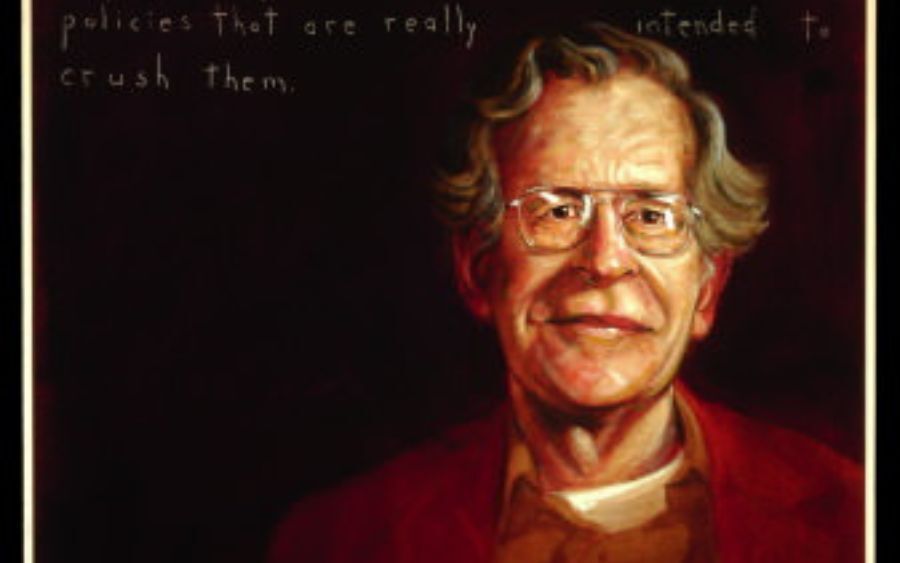Linguist, Political Activist, Writer (1928 – )
“…jingoism, racism, fear, religious fundamentalism: these are the ways of appealing to people if you’re trying to organize a mass base of support for policies that are really intended to crush them.”
Additional Quotes by Noam Chomsky
Either you repeat the same conventional doctrines everybody is saying, or else you say something true, and it will sound like it's from Neptune.
Everybody's worried about stopping terrorism. Well, there's a really easy way: stop participating in it.
Human language appears to be a unique phenomenon, without significant analogue in the animal world.
I have often thought that if a rational Fascist dictatorship were to exist, then it would choose the American system.
If the Nuremberg laws were applied, then every post-war American president would have been hanged.
If we choose, we can live in a world of comforting illusion.
If we don't believe in freedom of expression for people we despise, we don't believe in it at all.
In this possibly terminal phase of human existence, democracy and freedom are more than just ideals to be valued - they may be essential to survival.
Language is a process of free creation; its laws and principles are fixed, but the manner in which the principles of generation are used is free and infinitely varied. Even the interpretation and use of words involves a process of free creation.
Propaganda is to a democracy what the bludgeon is to a totalitarian state.
Resistance is feasible even for those who are not heroes by nature, and it is an obligation, I believe, for those who fear the consequences and detest the reality of the attempt to impose American hegemony.
States are not moral agents, people are, and can impose moral standards on powerful institutions.
Biography
Noam Chomsky was born in Philadelphia to immigrant Russian parents, both of whom were Hebrew scholars and teachers. A child of the Great Depression, Chomsky’s political consciousness developed early. He saw women strikers being beaten outside a textile factory and rag sellers peddling their pitiful wares door-to-door in his neighborhood. To the 10 year-old Chomsky the 1930’s were “a time of political activism, debate, and great fear of Hitler conquering Europe. I saw the world as a complicated, frightening place.”
He studied linguistics at the University of Pennsylvania and Harvard and in 1957, while a professor at the Massachusetts Institute of Technology, he published Syntactic Structures a theory of “generative grammar” that transformed linguistics from an obscure discipline into a major social science. Outside of academia Chomsky is better known as a political activist—a role that he vigorously assumed as an early and outspoken critic and protester of the Vietnam War.
In the 1966 essay, “The Responsibility of Intellectuals,” Chomsky challenged intellectuals “to speak the truth and expose lies,” and he carried his protests beyond the printed page: he became a tax resister and he was arrested in 1967 at the Pentagon while protesting military involvement in Southeast Asia.
Chomsky’s criticism of U.S. governmental policies has continued unabated since that time. In Deterring Democracy (1992) and in other books he has focused on trade and economic issues and accuses the Government of being a “rogue superpower.” “I’m a citizen of the United States,” says Chomsky, “and I have a share of responsibility for what it does. I’d like to see it act in ways that meet decent moral standards. It’s back to moral truisms: it’s of little value to criticize the crimes of someone else—though you should do it, and tell the truth. I have no influence over the policies of [other countries] but a certain degree over the policies of the U.S. It’s not a matter of expectation but of aspiration.”


